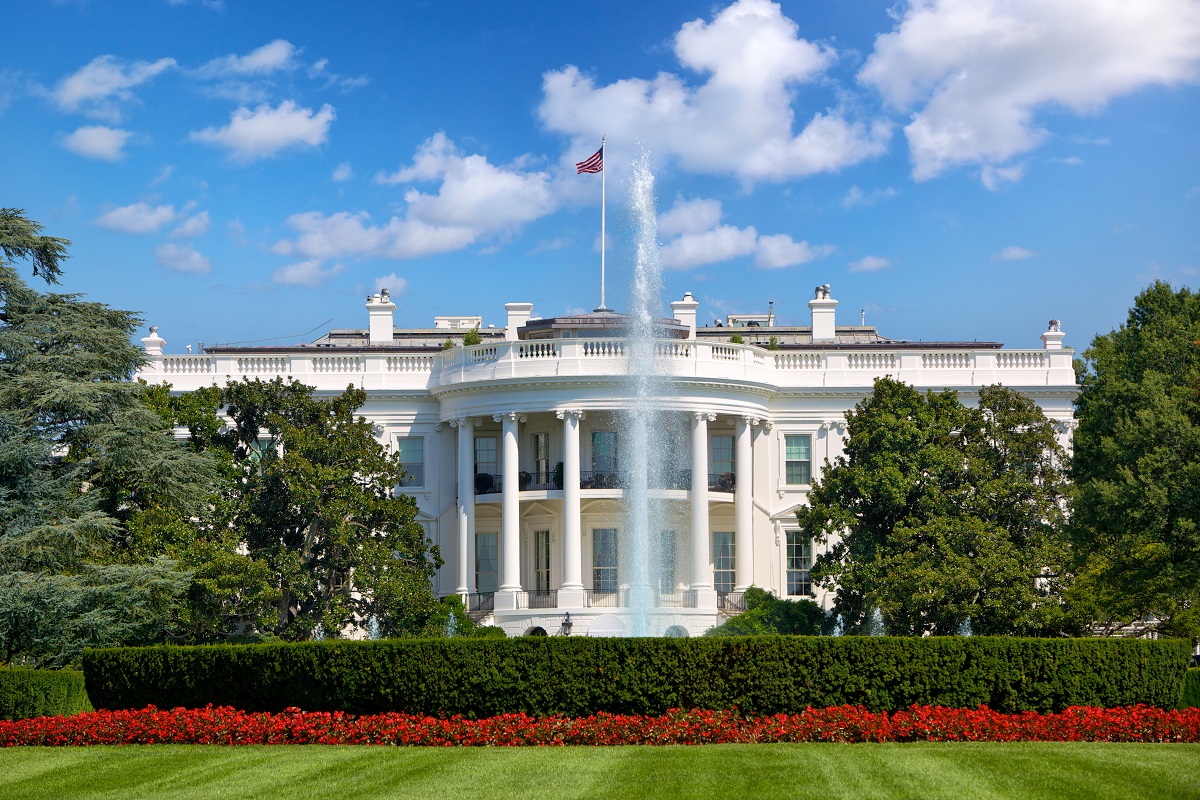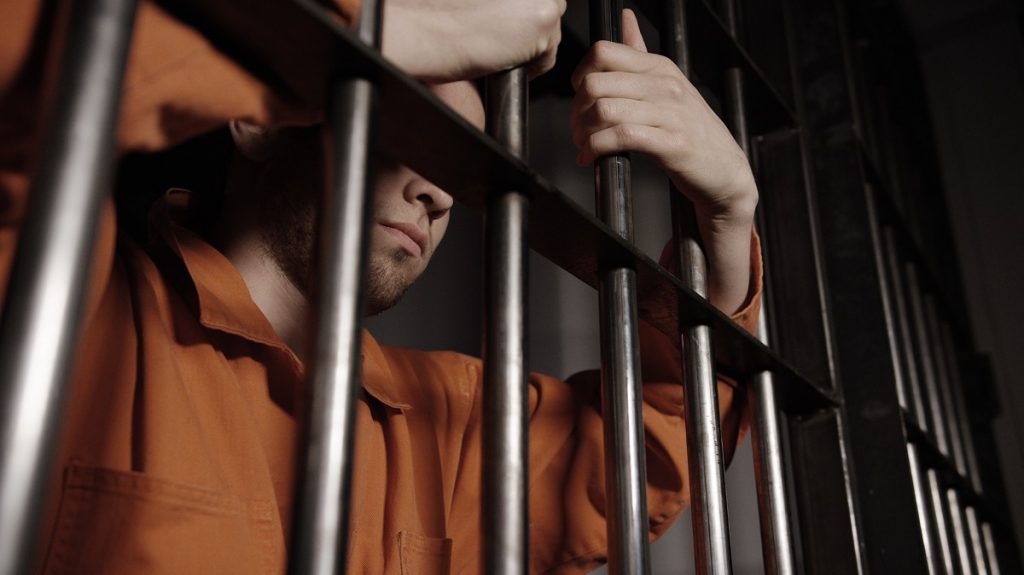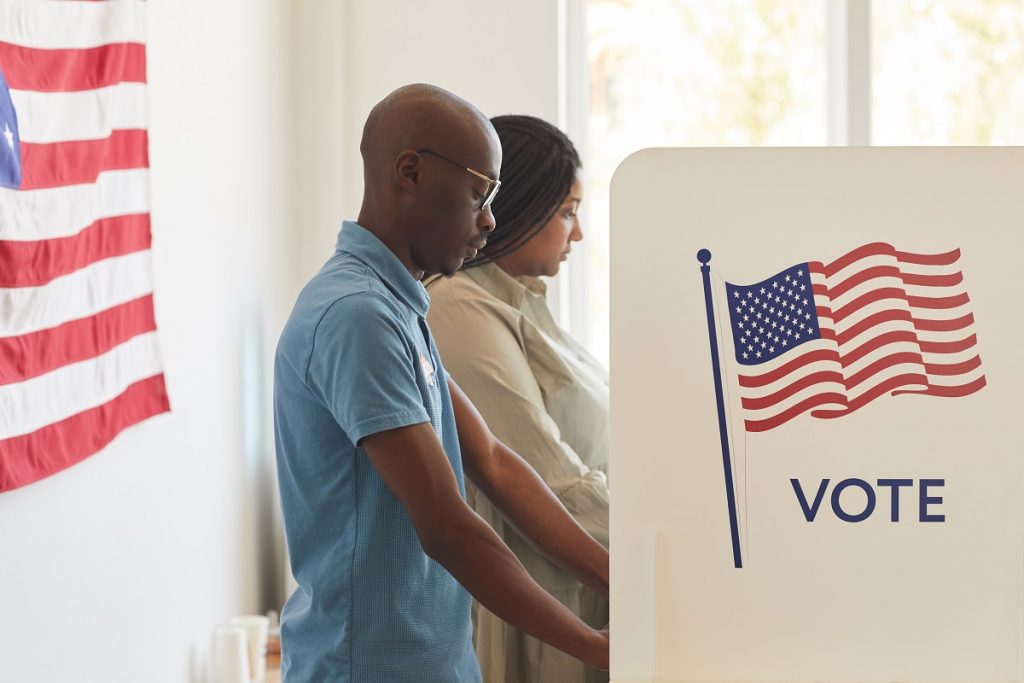
In November 2020, American voters will be deciding on leadership for our country. But another critical facet of the vote concerns cannabis legalization. In a July 2019 Gallup survey, 12% of American adults reported that they used cannabis regularly. That number (despite the legalization of medical marijuana in 34 states [2020]) has remained unchanged since 2015.
There are some interesting insights in the Gallup poll that relate to voter demographics of interest to every political incumbent in November.
The 18-29-year-old segment represents a key group of interest for incumbents because they are socially and politically active in more significant numbers in 2020. Women voters represented 63% of ballots in the 2016 election (compared to 59% of male voter turnout).
In a polarized and pandemic weary political climate, candidates’ opinions about cannabis regulation and decriminalization will strongly affect electoral results in November. And that is one reason that Presidential Candidate Joe Biden chose Kamala Harris as his running mate for the Vice Presidency position.
As the former Vice President of the United States, Joe Biden was a vocal opponent to the legalization of cannabis. He stated on numerous occasions that he did not feel that cannabis should be rescheduled or descheduled from the Controlled Substances Act (CSA).
What is unusual about Joe Biden’s stance against cannabis legalization is that it opposed the Democratic party’s overwhelming support of decriminalization. You would expect that he would “tow the party line” when it came to important social, health, and administrative policies.
During the Obama era, when Biden served as Vice President, President Obama had a “middle of the fence” stance about cannabis. The President was not opposed to decriminalization. President Obama stated on more than one occasion that he felt cannabis should be legal and regulated the same way as alcohol and tobacco. And taxed to the benefit of state and federal coffers.
Presidential candidate Joe Biden served in the Senate as the Chair of the Judiciary Committee. Biden has been vocal about his regret regarding specific pieces of legislation that he supported. But not about his stance for cartels and organized crime.
Joe Biden has stated that he is supportive of decriminalization. And that is a more progressive step forward and commitment than any President in the past twenty years. According to interviews with Biden aides, he wants more scientific evidence before he decides on deregulation. But he thinks decriminalization of cannabis should happen immediately.
When the United States Drug Enforcement Administration considers whether or not to deschedule a drug from the CSA, eight (8) different factors are used. In Section 201 (c), [21 U.S.C. § 811 (c)] of the Controlled Substances Act, these factors are used to evaluate the potential harm. The onus is on the lawmakers to prove that the criteria do not apply to the drug to have a drug decontrolled.

Only the DEA Administrator or Congress can add or remove a drug from the Controlled Substances Act (CSA). The eight points of consideration in the CSA are:
(1) Its actual or relative potential for abuse.
(2) Scientific evidence of its pharmacological effect, if known.
(3) The state of current scientific knowledge regarding the drug or other substance.
(4) Its history and current pattern of abuse.
(5) The scope, duration, and significance of abuse.
(6) What, if any, risk there is to the public health.
(7) Its psychic or physiological dependence liability.
(8) Whether the substance is an immediate precursor of a substance already controlled under this subchapter.
To take legal action to draft the “MORE” Act, House Representatives supporting the proposed law have to prove that cannabis should not belong in the controlled substances table. In this case, it is more about disproving the criteria or arguing that cannabis does not meet the concerns and health risks that categorize controlled substances.
Suppose you are knowledgeable about cannabis in terms of health and wellness benefits. In that case, you may agree that much of the criteria is unproven, which means that there is not enough clinical evidence to demonstrate that cannabis poses harm for short-term or long-term use. Interestingly, ample evidence is available that opioid medications are harmful, addictive, and have a high overdose fatality rate. Yet the DEA only began to add opioid drugs like fentanyl to the CSA in 2016.
The U.S. federal government and the DEA insist that to decontrol a substance that has been placed on the CSA list, there must be proof that these factors are not valid. Research teams in other countries have been conducting clinical studies for decades, but there has been a significant obstacle in the United States.
The federal government wants evidence-based research on cannabis. However, until recently, no funding has been allocated to clinical studies (short and long-term) on the health benefits and effects of cannabis. The federal government will not provide research grants for illicit substances.
The best analogy for that stalemate? It is like a teenager asking for the keys to the car. The parent refuses until the teen has sufficient driving experience. But without being granted access to that experience and learning, it is an impossible task. That is precisely where cannabis regulatory laws have been stuck in the United States since mass prohibition in the 1950s.
The support of medical cannabis legalization in the United States has been growing steadily. This is because of several factors. The aging of the American population and increasing rates of chronic disease. Increasing awareness of the risks of opioid use and prescribers who are now significantly limiting opioid medication scripts for patients. It has fed the need to look for better, safer, and more accessible pain management solutions.
Kamala Harris was one of the people who had a staunch opinion about cannabis for much of her political career. The stance was “all drugs are bad,” which was where she was cemented in personal and administrative policy. So what changed that led Kamala Harris to champion the “MORE” Act, which moves to legalize cannabis federally?
Critics say that her Vice Presidency interests were the reason. Years before Kamala Harris had an inkling that she might run with Joe Biden, she was already working hard on the “MORE” Act. Harris began to vocalize support for the decriminalization of cannabis in 2018.
Kamala Harris is Asian (India) and African American. She considers herself to be a person of color (POC). Since 2018 she has become a vocal speaker about the racial disparity of incarceration for black and brown-skinned Americans. Specific to charges of personal-use quantities of cannabis.
Kamala Harris, a former prosecutor, understands the racial bias of cannabis laws in America. Watch this video interview from “Now This” that summarizes Harris’s change with the “MORE” Act.
In the proposed legislation, the “MORE” Act or the Marijuana Opportunity Reinvestment and Expungement Act, social and legal changes could be sweeping if passed. Many analysts have called the piece of proposed legislation “historic.” It has reached further into the legislative process than any other cannabis decriminalization measure since prohibition in the 1930s.

The first and most important change that the “MORE” Act would have is mass expungement. This is something that states are already looking at in response to growing incarceration populations on petty drug possession crimes. Expungement would only apply to individuals who have been serving time for a personal-use quantity (non-production, manufacturing, or distribution).
The expungement laws would also apply to individuals who have been arrested more than once for small amounts < 2 ounces. Expungement policy under the “MORE” Act would not include individuals who committed violent crimes, however. Or individuals associated with organized crime activities.
The “high growth” cannabis industry (medical marijuana and adult-use) presents revenue opportunities for states and the federal government. Some of the terms in the “MORE” Act allocate the massive tax revenues gained by federal decriminalization of marijuana to critical social programs. Some have speculated that marijuana excise tax revenue could be the solution to funding universal healthcare.
Some of the other proposals under the Marijuana Opportunity Reinvestment and Expungement Act include:
· Freedom for states to determine their cannabis policies and criminal charges for cannabis-related crimes.
· Decriminalization of cannabis. States may determine whether to implement fines for public consumption, etc. Criminalization of impaired driving will remain, whether the source is alcohol or cannabis consumption.
· It would not be illegal to travel with cannabis between states, and possibly, no longer illegal to travel domestically by plane with cannabis. Whether recreationally or as a medical cardholder.
For more information about the specifics of the proposed “MORE” legislation, read Decriminalization of Cannabis and “MORE” on our blog.
Kamala Harris and other supporters of the “MORE” Act (which is bipartisan) have stated that it is a course correction to repair the damage done during the “War on Drugs.” It acknowledges that racial disparities in cannabis-related offenses are a severe problem. American POCs (people of color) are more than 4x’s likely to be arrested.
House Majority Leader Steny Hoyer confirmed in a letter that a House vote on the “MORE” Act would take place by September 30, 2020.
It is not often that a political leader would change their mind about an issue as sensitive as cannabis legalization. After all, politicians tend to tow the federal line when it comes to regulatory principles. The change in demeanor about cannabis for Harris came from listening to advocacy groups and speaking at length with citizens in black communities.

Racial equity is behind many of the progressive campaigns and legislative changes that Kamala Harries wants to make. In 2019, she was interviewed by Rolling Stone magazine and announced another legal equity measure. A 100 billion dollar program to assist black families with downpayment and closing cost funds helps equalize homeowner opportunities for families. A program that would be administrated through the Department of Housing and Urban Development.
“A typical black family has just $10 of wealth for every $100 held by a white family. So, we must right that wrong and—after generations of discrimination—give black families a real shot at homeownership—historically one of the most powerful drivers of wealth.”
The history of racial prejudice impacts black families and communities on a variety of different levels. Increased incarceration rates can mean significant obstacles to education, employment, and financial well-being. This impact can be generational, contributing to 46% of children in black families living at or below the poverty line. At the same time, 9.9% of black married couples live below the poverty line.
Political analysts predict that the “MORE” act has between a 2% to 5% chance of being approved by the Republican-held Senate even though two Republican House Representatives have helped draft and sponsor the proposed legislation.
If Presidential Candidate Joe Biden wins the vote in November 2020, and Kamala Harris assumes the Vice Presidency, we can reasonably expect that the “MORE” Act will be revisited. In another iteration and persistently throughout her term as Vice President.
For Kamala Harris, the decriminalization of cannabis is about “righting the wrongs” of the “War On Drugs” and the impact it has had on American people of color. As a former prosecutor and woman of color herself, she has witnessed the negative effect of cannabis legal policies on black communities.
It is anyone’s guess what the results of the November 2020 election will be. Or if the Democratic party will have equal representation in the Senate in the near future. But what is clear is a growing movement to decriminalize cannabis. This can include rescheduling cannabis out of Schedule I on the Controlled Substances Act.
No Information on MarijuanaDoctors.Com should be used to diagnose, treat, prevent or cure any disease or condition. You can view our Full Disclaimer here.